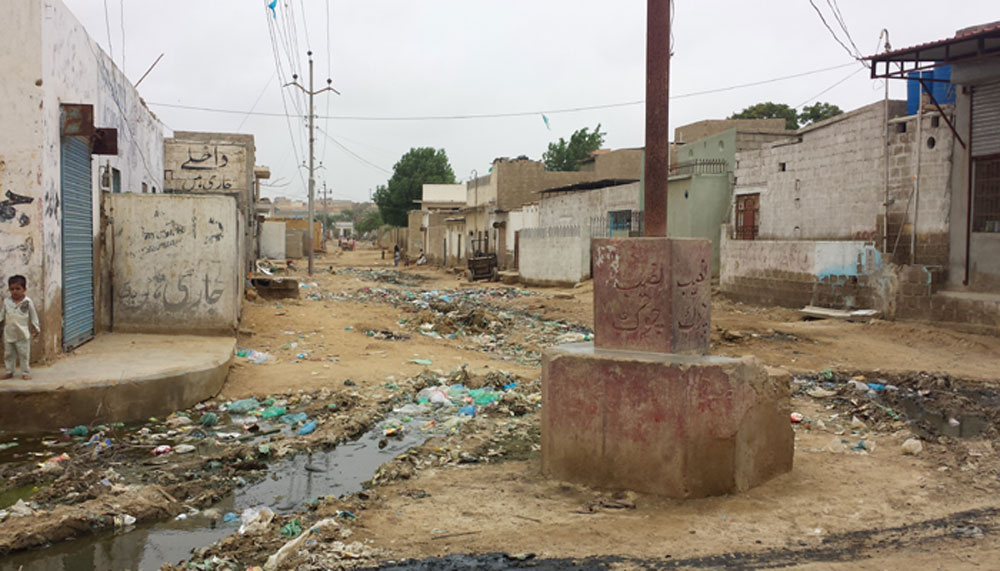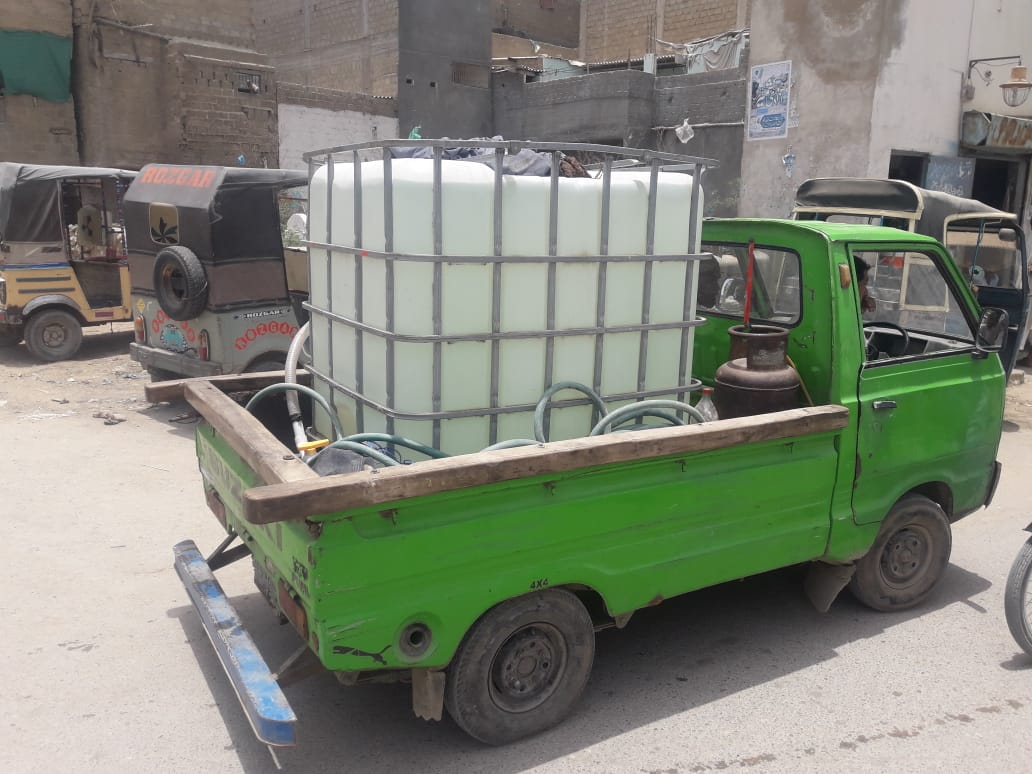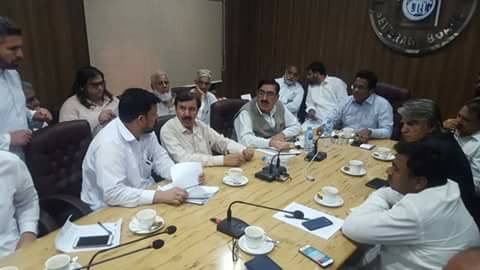For the Awami National Party (ANP), the warm-up to the 2018 general election is nothing like the one in 2013. “We finally have a level-playing field in Karachi,” says Razin Khan, the party’s District West vice president, “We can now campaign like any other political party.” In 2013, Khan remembers only shouldering the coffins of slain political workers and leaders in the city of over 16 million.
Back then, the ANP, a predominately Pashtun nationalist party, was running away from violence. The Tehreek-e-Taliban Pakistan (TTP), a militant outfit, unleashed a torrent of attacks against its workers in Karachi’s District West area, which is populated by a large Pashtun community.
Days before the May 2013 polls, the entire party was brought to its knees. According to the ANP leadership, it lost over 700 workers and leaders between 2009 and 2013 across Pakistan. District West, once considered a stronghold of the party, thereafter, turned into a no-go area for its members. Those who weren’t gunned down, fled.
“Our local presidents Saeed Ahmed Khan, Ameer Sardar, Dr Ziauddin and Saifullah Afridi were among those targeted by the Taliban,” Atharbaaz Shah told Geo.tv. Shah, a veteran party worker, too left for Malaysia before the polls. “A week before the election, our candidate for NA-254, Sadiq Zaman Khattak, was killed, along with his four-year-old son.”
But come 2018, the nightmare seems to be almost over. After the launch of the paramilitary operation in Karachi, to scrub it clean of crime and terrorism, stability has returned to many parts of the city, which has allowed the ANP to regroup, restructure and return to the political battlefield.
In Karachi’s District West, its candidates are: Shahi Syed for NA-250, Bashir Ahmed for NA-248, former Sindh labour minister Amir Nawab for PS-120, Qaim Khan Afridi for PS-115 and Pir Gul Rasool for PS-116.
“We are hoping to secure at least three to five national assembly seats from the District,” says Abdul Kabeer Kakar, the ANP candidate for a provincial seat in the area.
NA-250, in the District West, has 821,992 registered voters. It has been stalked out of parts of the SITE industrial areas and Orangi Town. Here, the favourite to win is ANP’s Shahi Syed.
Further boosting his prospect is the seat adjustment formula the ANP has struck with the former ruling party, the Pakistan Muslim League-Nawaz (PML-N), which has withdrawn the nomination papers of its president, Shehbaz Sharif, in favour of ANP from the NA-250 constituency.

PML-N activist Khawaja Tariq Nazir confirms that Sharif’s papers were yanked to accommodate the ANP. “Vice versa, the ANP has withdrawn its candidate and announced support for Shehbaz Sharif in NA- 249 (Karachi).”
The contest is expected to be two-way between Shahi Syed and Muttahida Majlis-e-Amal’s (MMA) candidate Hafiz Naeemur Rehman, insists Naimat Khan, a Karachi-based journalist. But there is a third player – the Muttahida Qaumi Movement- Pakistan (MQM-P) – which cannot be disregarded.
Previously, the MQM was the most entrenched political party in the metropolis. However, in the last two years, it has fragmented into splinter groups, the most prominent of which is the Muttahida Qaumi Movement- Pakistan (MQM-P).
Despite the internal bickering and setbacks, the MQM-P is confident that Shahi Syed’s odds in NA-250 look slim. In 2013, the MQM candidate, Syed Akther ul Iqbal Qadri won a thumping victory in the constituency (formerly NA-241) with over 90,000 votes. The MQM-P expects a repeat win. “Those writing us off are living in a fool’s paradise,” says Aminul Haq, a spokesperson of the party.
But journalist Naimat Khan isn’t too sure that the Mohajir-centric political party can bag the seat. After the recent delimitation and redrawing of constituency boundaries, “majority of the polling stations in NA-250 will now be in the Pashtun-dominated areas. MQM-P has little or no vote bank here.”
Also, between 2013 and now, the issues of the city have evolved. Before 2013, the primary concern of the residents of Karachi was security, which is what political candidates pegged their campaigns on. But now, it is water. “The core issue is access to clean drinking water,” explains ANP’s Kakar.
A walk through NA-250 and one is confronted with a potpourri of campaign posters. At corner meetings, when a candidate promise to address water concerns, they receive the loudest applause.
“Our taps have run dry,” complained Mustaqim Khan, a daily wager, “we have to pay an additional Rs 800 per week to get water for basic consumption.”

Keeping that in mind the MMA and ANP representatives recently held separate press conferences in the area, after meetings the Karachi Water and Sewerage Board representatives to discuss the shortage of water. But for the ANP, at least, the media stunt backfired.

“Shahi Syed became a laughing stock soon after pictures from the meeting were released,” says Sartaj Khan, a Karachi-based political analyst. “It was ironic. The team he took to meet the officials included people who are known to be part of the water mafia in the city.”
Even with the days of terror behind it, winning in Karachi is still an uphill task for the ANP. The party will go into the 2018 polls as underdogs in one of Pakistan’s most important cities. But can it ride the electoral tide with ease?


